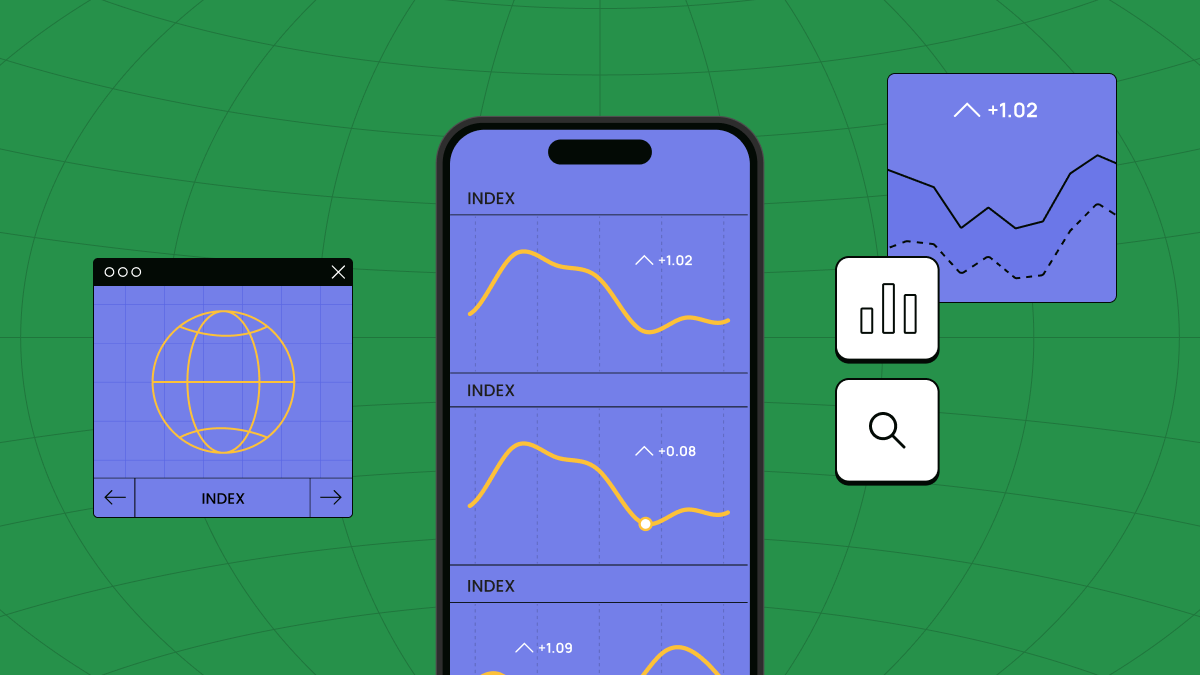Getting to know the world’s top foreign index funds

1. MSCI World Index
The MSCI World Index gives traders access to developed markets worldwide, including North America, Europe, and Asia-Pacific. When you trade index funds that follow the MSCI World Index, you can take advantage of major market moves across top global economies and adjust your strategies based on worldwide trends.
2. MSCI All Country World Index (ACWI)
This index goes one step further. It includes both developed and emerging markets, giving you a more complete view of the global stock market. It’s useful if you want to spread your trades across different economies and catch opportunities in a variety of places.
3. Emerging Markets
Indices that focus on emerging markets allow you to trade in fast-growing economies, especially in Asia and Latin America. The MSCI Emerging Markets Index tracks countries that are still developing but offer strong growth potential and more price movement.
4. The MSCI AC Asia Pacific Ex. Japan Index
This index includes countries like China, South Korea, and Australia. It’s a good option if you want to focus on the broader Asia-Pacific region without Japan influencing the overall picture.
5. USA Stock Market
The US stock market is one of the most active and liquid in the world. Major indices like the S&P 500 and the Dow Jones give you access to a wide range of industries. There’s plenty of liquidity and volatility, which can work well for both short-term and long-term trading strategies.
6. EU Stock Market
Similarly, the EU stock market, which includes exchanges of major European economies such as Germany, France, and the United Kingdom, offers traders access to various industries and companies with diverse trading patterns and trends. These markets can give you exposure to companies that don’t always move in sync with the US.
7. Germany Stock Market
Germany’s DAX index reflects the performance of some of the largest companies in Europe’s most powerful economy. It’s a useful tool if you’re looking for opportunities in European equities.
8. Japanese Stock Market
If you're interested in a mix of traditional and innovative industries, trading in Japan’s stock market might be a good fit. Indexes like the Nikkei 225 let traders tap into opportunities in sectors like tech, automotive, and consumer electronics.
9. China Stock Market
China’s stock market, represented by indices like the CSI 300, offers traders exposure to the world’s second-largest economy. Its dynamic nature and diverse sectors allow traders to capitalize on short-term trends and long-term growth prospects.
10. Indian Stock Market
India’s stock market, represented by indices like the Nifty 50 and the BSE Sensex, offers traders trading opportunities driven by a young demographic, a middle class, and ongoing economic reforms. It offers both volatility and potential rewards.
11. South Korean Stock Market
The South Korean stock market, represented by indices like the KOSPI, offers traders exposure to leading companies in technology, automotive, and consumer goods industries, with trading opportunities driven by innovation and global market trends.
12. Vietnam Stock Market
While relatively small compared to its regional peers, Vietnam’'s stock market provides traders with opportunities to capitalize on one of Southeast Asia’s fastest-growing economies. It’s driven by manufacturing, exports, and foreign investment.
13. Indonesian Stock Market
Indonesia’s stock market, represented by indices like the IDX Composite, offers traders diverse trading opportunities across commodities, consumer goods, and infrastructure sectors, navigating the opportunities and challenges of the sprawling archipelago nation.
14. Thai Stock Market
The Thai stock market, represented by indices like the SET Index, allows traders to explore trading opportunities across tourism, manufacturing, and agricultural sectors. This serves as a gateway to trading opportunities in Southeast Asia.
Which index fund is good?
If you're considering index investing, you should be aware that choosing the right index for you may take a bit more than just picking one or two from the top of the list.

